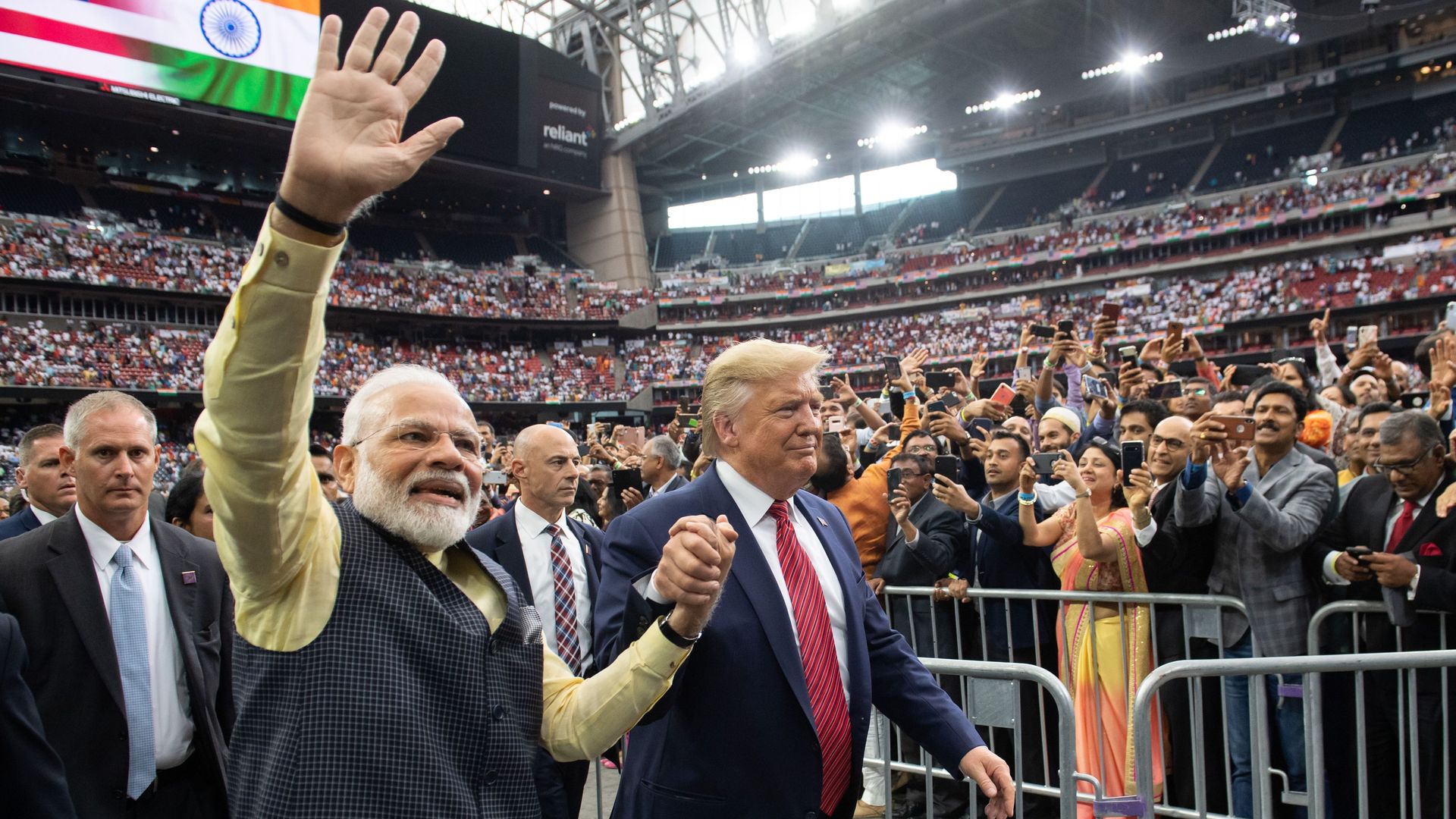Former US President Donald Trump’s proposal to meet Indian Prime Minister Narendra Modi during Modi’s visit to the United States for the upcoming QUAD meeting has sparked significant debate. Trump’s announcement, coming at a time when he is the Republican Party’s presidential nominee for the 2024 election, raises questions about the appropriateness and timing of such a meeting. Should Modi, as the leader of a major global democracy, meet a former president who is currently embroiled in a contentious political campaign, or would this gesture create unnecessary political turbulence in both countries? India and the United States have shared a robust relationship over the past several decades, with cooperation expanding across multiple domains—economic, strategic, and cultural. This partnership, which took root during President Barack Obama’s tenure, was cemented further during Trump’s presidency. Despite some frictions, the two countries saw remarkable progress in defence cooperation, trade relations, and shared strategic interests, particularly in counterbalancing China’s influence in the Indo-Pacific region. One of the standout features of Trump’s presidency was his personal rapport with Modi. The chemistry between the two leaders was often on public display, notably during events like the “Howdy Modi” rally in Houston, where Trump appeared alongside Modi, signalling strong personal ties. Their mutual admiration reflected a unique chapter in India-US relations, akin to the camaraderie seen during the John F. Kennedy-Jawaharlal Nehru era. However, that historical comparison belongs to a different time and context—one where India was still navigating its newly acquired independence and global position. Narendra Modi’s rise to power is itself a story of remarkable personal achievement. Unlike Nehru, who hailed from a wealthy and influential family, Modi’s background is rooted in humble beginnings as a tea-seller. His ascent to the office of Prime Minister, leading one of the world’s largest democracies, is a testament to his determination and personal integrity. His political journey has been marked by a vision of economic reform, national security, and a bold approach to foreign policy.
Despite frequent criticism from India’s opposition parties, Modi has remained a symbol of self-made leadership, consistently advocating for India’s interests on the global stage. Under his leadership, India has not only strengthened its military and economic standing but also emerged as a key player in resolving global conflicts. Modi’s efforts in navigating the complexities of the Russia-Ukraine war, the Israel-Hamas tensions, and the India-China border standoff reflect his prominence as a global leader with substantial influence. Against this backdrop, the real question is whether Modi should meet with Trump, a candidate in the midst of a high-stakes election campaign. Accepting such an invitation could be perceived as a political endorsement, something that could stir controversy in both India and the United States. Trump is known for his divisive rhetoric and his presidency was marked by polarizing policies, from immigration to trade. Meeting with him at this juncture could expose Modi to criticism from both sides of the political aisle, with opposition leaders in India potentially accusing him of aligning with a controversial figure in American politics. Moreover, it is important to consider the current dynamics between India and the Biden administration. President Joe Biden has continued to nurture the India-US relationship, ensuring that the strategic partnership remains strong. Modi has maintained productive ties with Biden, particularly in the areas of climate change, technology, and defence. In the context of ongoing global challenges, from the Ukraine conflict to China’s assertiveness, Modi’s alignment with the current administration is critical. While speculation remains rife about whether Modi will accept Trump’s invitation, it is important to recognize that such a meeting could have significant diplomatic repercussions. For Trump, the optics of meeting a world leader of Modi’s stature could serve as a valuable political tool in his campaign, showcasing his global influence. However, for Modi, the risks seem to outweigh the benefits.

India’s foreign policy, particularly under Modi, has been carefully calibrated to avoid unnecessary entanglements in foreign electoral politics. Modi’s stature as a global leader means he cannot afford to be seen as taking sides in another country’s domestic affairs, especially not in a superpower like the United States. Accepting Trump’s invitation might inadvertently draw India into America’s polarized political landscape, a situation that could strain relations with the Biden administration. Furthermore, Modi’s global leadership role—especially in mediating or contributing to resolutions in international conflicts—demands that he remain neutral and focused on broader global interests. The ongoing challenges in the Middle East, the precarious Russia-Ukraine situation, and India’s own regional security concerns are far too significant for Modi to risk entangling himself in an unnecessary political storm. In the world of high-stakes diplomacy, optics and timing matter. While Trump’s invitation to Modi might seem like a simple gesture of goodwill between two leaders who share a strong rapport, it is far more complex than that. The stakes of this meeting are not limited to personal relationships but extend into the broader realm of international relations and political optics. “For Modi, the prudent choice may be to maintain his focus on the larger global agenda and avoid getting drawn into the internal political battles of a foreign power. This could be why the External Affairs Ministry has not included Trump’s meeting in the official itinerary for the Indian Prime Minister. Meeting with a presidential candidate in the heat of an election campaign, particularly one as polarizing as Trump, could very well create more problems than it solves. In this case, the storm in the teacup may simply not be worth stirring.”






